- Two Thanksgiving Thoughts for the ACAPosted 10 years ago
- Shop til you Drop at the Healthcare Marketplace Part 2: Frustration!Posted 10 years ago
- An Early Casualty in the Affordable Care FightPosted 10 years ago
- Some Good News for a ChangePosted 10 years ago
Where is the Political Center of America?
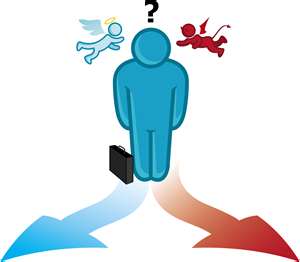 Having blown my cover as a fan of moderation in politics, I need to assess how that foots with the political spectrum in the US these days. Being moderate should not be confused with being wimpy or passive. It means being both intelligent and humane, temperate and skeptical, — a good listener. It means thinking for yourself. It does not preclude passion or commitment.
Having blown my cover as a fan of moderation in politics, I need to assess how that foots with the political spectrum in the US these days. Being moderate should not be confused with being wimpy or passive. It means being both intelligent and humane, temperate and skeptical, — a good listener. It means thinking for yourself. It does not preclude passion or commitment.
Ideally the current US political spectrum runs from the Radical, (pure Marxist) Communists, through Socialists then Liberals on the left to Conservatives, Isolationist Libertarians and Plutocrats, to Bring-back-the Past anti-Science reactionaries on the far right. Anarchists, who want no government or want to blow up the government that exists, are out in the stratosphere away from the political spectrum.
The word Radical is for used for left-wing extremists because they advocate startling change to achieve their ends. Right wing extremists are called Reactionary because they want to preserve the status-quo at all cost and so react only when there is a threat of change.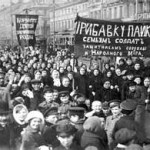
The political spectrum is not two-dimensional but three-, maybe four-. Fascists have been termed ‘extremists-of-the-middle’ because they do want some change, espouse rigid order and value conformity and obedience at all costs. Thankfully they are not a force now, though they always are capable of a comeback when the public over-values security above everything else.
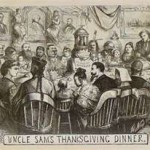 Luckily this country has never seriously flirted with Fascism. Hitler and Mussolini guaranteed that. The American experience has however swung back and forth between left and right. In the 20’s and 30’s, some Americans were intrigued by the egalitarianism of communism where the worker reigned supreme and the state served his needs. There were also a scattering of mostly intellectuals in the country intrigued by Socialism as an orderly state which ran and controlled much of the existing social function for the ‘greater good of the greater number.’ America never had a Communist Party of any consequence, and never seriously flirted with the Socialist movement, unlike Britain, France and others. Socialism gave these countries a national health system. The US never bit, preferring a system tied to employment and collective bargaining which is currently unravelling.
Luckily this country has never seriously flirted with Fascism. Hitler and Mussolini guaranteed that. The American experience has however swung back and forth between left and right. In the 20’s and 30’s, some Americans were intrigued by the egalitarianism of communism where the worker reigned supreme and the state served his needs. There were also a scattering of mostly intellectuals in the country intrigued by Socialism as an orderly state which ran and controlled much of the existing social function for the ‘greater good of the greater number.’ America never had a Communist Party of any consequence, and never seriously flirted with the Socialist movement, unlike Britain, France and others. Socialism gave these countries a national health system. The US never bit, preferring a system tied to employment and collective bargaining which is currently unravelling.
In the 40’s and 50’s, as the Cold War began, the country drifted right. The Red Scare got a lot of Press. Communists were the subject of Congressional witch hunts. The Cold War waged against a ‘Communist’ (but really, oligarchical bureaucratic and Socialist) state, checked any possibility of US drift to the far left. Soviet excesses were widely publicized. Socialism was regarded as the next step on the way to Communism — both very un-American.
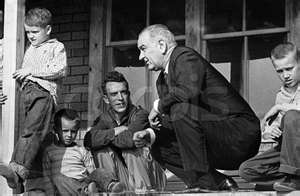 In the 60’s there was an increasing demand for social change from a new generation. Repressed groups demanded equal access to the American Dream and social justice. Most Americans were inclined to grant it. The country shifted left under Presidents Kennedy and Johnson. They enacted social reforms like Desegregation and Civil Rights legislation. Liberalism was in flower. It had given us social security and unemployment insurance in the Depression. Now it brought Medicaid and Medicare but also an unpopular war. It also gave us ‘welfare’ programs and a ‘Great Society’ designed to lift all boats.
In the 60’s there was an increasing demand for social change from a new generation. Repressed groups demanded equal access to the American Dream and social justice. Most Americans were inclined to grant it. The country shifted left under Presidents Kennedy and Johnson. They enacted social reforms like Desegregation and Civil Rights legislation. Liberalism was in flower. It had given us social security and unemployment insurance in the Depression. Now it brought Medicaid and Medicare but also an unpopular war. It also gave us ‘welfare’ programs and a ‘Great Society’ designed to lift all boats.
By decade’s end, war fatigue and the excesses of this hard-fought social struggle — inner-city riots, shooting, fighting in the streets, public demonstrations — triggered another long slow slide to the right, where we find ourselves today. Carter and Clinton slowed the slide, but did not reverse it. Obama has resisted and on occasion succumbed.
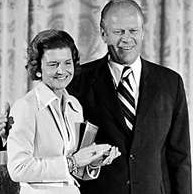 A moderate of the 1930’s might well have voted with Franklin Roosevelt and the New Deal. In the 50’s the same moderate likely stood by General Eisenhower. Gerald Ford, who was in his time described as a Conservative leader in Congress, vowing to impeach Chief Justice Earl Warren, became a fairly moderate president. Governor Nelson Rockefeller, Senators Hugh Scott, Henry ‘Scoop’ Jackson, Jacob Javits, Edward Brooke and Robert Byrd were other moderates from that time, judged in hindsight. None of them lost sight of their obligations to humanity.
A moderate of the 1930’s might well have voted with Franklin Roosevelt and the New Deal. In the 50’s the same moderate likely stood by General Eisenhower. Gerald Ford, who was in his time described as a Conservative leader in Congress, vowing to impeach Chief Justice Earl Warren, became a fairly moderate president. Governor Nelson Rockefeller, Senators Hugh Scott, Henry ‘Scoop’ Jackson, Jacob Javits, Edward Brooke and Robert Byrd were other moderates from that time, judged in hindsight. None of them lost sight of their obligations to humanity.
Even Reagan, the Great Conservative, preached a brand of dear-hearts-and-gentle-people politics that many Americans identified as theirs. He kept the lunatic fringe of the right at bay, just as FDR kept the lunatic fringe of the left at bay during his tenure. Since 2000, the Republican Party, buoyed by the Reagan Ascendancy, continued the slide to the right, absorbing old George Wallace-type Dixiecrats from the South disaffected by Civil Rights and The Great Society, and Christian Evangelicals from the South and Mid-west who were once politically inactive. Anger and purging became a hallmark of the movement. These social conservatives joined forces with fiscal conservatives in the party, driving the liberal and later moderate wings into the Independent column. They talked financial responsibility in the new milennium but pushed the country into a deep crisis with unfunded tax breaks, a Pharma-friendly Byzantine Medicare Part D and two avoidable unfunded foreign wars
America’s fascination with extremes on the left has all but disappeared — for now. There are no modern counterparts to Norman Thomas, former head of the American Communist party, or Eugene V Debs, the most famous past leader of the American Socialist movement. Bernie Sanders, the Independent senator from Vermont calls himself a Socialist but talks like a liberal from the ’60s. Labor, once the fuel tank of left-of-center thinking has lost its clout with the disappearance of manufacturing. Its membership numbers have declined. It has become increasingly more of an advocate for its own status-quo than a promoter of contemporary liberal causes.
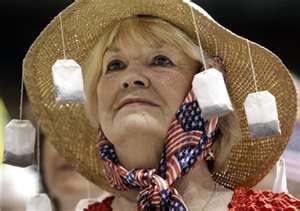 America today is a fairly conservative country. Ronald Reagan helped popularize modern Conservatism. But the country itself has moved much further to the right since he left the White House. A moderate position of 1970 may seem out there on the left today. A middle-of-the-road stance in 2012 probably stands to the right of Richard Nixon and the left of George H W Bush. The contemporary moderate finds it fairly lonely in the center lane. There is no organized political party advocating moderation on social or fiscal issues. Many Independents have taken themselves off the political playing field, becoming inactive and disaffected. They don’t march. They don’t vote. They may not even register. And they don’t wear tea bags on their hats. They are the largest single political group in the country and they have been silenced.
America today is a fairly conservative country. Ronald Reagan helped popularize modern Conservatism. But the country itself has moved much further to the right since he left the White House. A moderate position of 1970 may seem out there on the left today. A middle-of-the-road stance in 2012 probably stands to the right of Richard Nixon and the left of George H W Bush. The contemporary moderate finds it fairly lonely in the center lane. There is no organized political party advocating moderation on social or fiscal issues. Many Independents have taken themselves off the political playing field, becoming inactive and disaffected. They don’t march. They don’t vote. They may not even register. And they don’t wear tea bags on their hats. They are the largest single political group in the country and they have been silenced.
It was the middle, in those days when government still worked, where much of the task of governing took place. Ideas came from the right and left, but got hammered out by moderates. Moderation was the alternative to polarization and paralysis. It negated the need for loyalty tests and party solidarity. Many independents long for that era of (relative) good feeling. If we as a nation are going move ahead again, these moderates need to get back into the political arena. A stance of mass indifference is just asking for disaster.
 Moderate Independents will likely not pursue the political ‘middle’ to the far right as GOP politicians start falling of the edge into plutocracy, taking the rest of us with them. They will likely stay on the sidelines. They will grumble about how they hate politics. They have been turned off by the course of events since 2008. Who, if anyone, will turn them, and the lights in this country, back on again in 2012?
Moderate Independents will likely not pursue the political ‘middle’ to the far right as GOP politicians start falling of the edge into plutocracy, taking the rest of us with them. They will likely stay on the sidelines. They will grumble about how they hate politics. They have been turned off by the course of events since 2008. Who, if anyone, will turn them, and the lights in this country, back on again in 2012?
Tom Godfrey
PS If you like what you read here at the Post, please tell a friend. If you don’t, tell two.

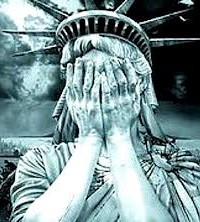
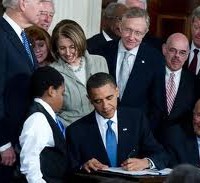

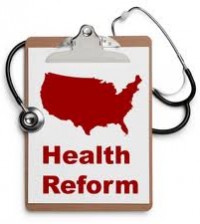



Excellent Tom. A truly comprehensive observation of political spectrum and power struggle in this country today. Some parts I really liked:
“Being moderate should not be confused with being wimpy or passive. It means being both intelligent and humane, temperate and skeptical, — a good listener. It means thinking for yourself. It does not preclude passion or commitment.”
Sometimes it feels awkward when not joining one mob or another, but fighting to maintain objectivity and balance. Make a passionate plea to consider reason and compromise.
“…Independents have taken themselves off the political playing field… They are the largest single political group in the country and they have been silenced.”
I feel their silence is in the inability to engage the political forum with reason. It seems the left and right have succumb to their fringes as opposed to keeping them at bay. When the center sees this, they realize no one is listening. So… why bother? Well… my answer to them is: Because you are all citizens of this country and it is your civic duty.
This article crystallizes and puts forth observation that I hope will be used by all to further understand where they stand.
Thank you,